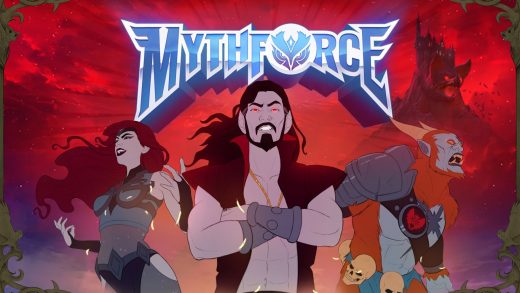:format(webp)/https://www.thestar.com/content/dam/thestar/entertainment/music/2023/02/09/black-belt-eagle-scout-rediscovers-the-spiritual-potential-of-home-on-new-album-the-land-the-water-the-sky/black_belt_eagle_scout_by_nate_lemuel_of_darklisted_photography.jpg)
“Spaces” started out as a delicate vocal melody — just a few whispered notes that came to singer-songwriter and multi-instrumentalist Katherine Paul while holed up in her Portland bedroom during the early days of the pandemic.
On the final version of the song, released nearly three years later, that melody is wrapped in a rich tapestry of sounds: a slide guitar, yearning violin and cello parts played by her friends, and gorgeous backing vocals provided by her mother and father.
“I wanted ‘Spaces’ to be a healing song,” Paul, who performs as Black Belt Eagle Scout and goes by the initials KP, said via video call in late January. “So I asked my parents to sing with me.
“You can mainly hear my dad, because he has this really strong pow wow voice,” she added, referring to the deep vibrato that appears near the end of the song. “He’s sung pow wow songs and canoe songs for the majority of his life. He sings in that way to help heal people.”
Recorded in a studio just north of the Swinomish Indian Tribal Community in Washington, where KP grew up, “Spaces” acts not only as the emotional climax of Black Belt Eagle Scout’s new album, “The Land, The Water, The Sky,” but also represents the musical culmination of an artist’s journey home.
“There’s this feeling that I get when I’m here in my homeland,” KP, who returned to Swinomish after 13 years in Portland, explained. “It’s like this feeling of 100 per cent acceptance, that this is where I’m supposed to be.”
As its title implies, “The Land, The Water, The Sky” — released Friday on Saddle Creek Records — is rooted in the natural world. Across its 12 tracks and the accompanying videos released so far, KP takes listeners on an immersive tour of Swinomish, evoking imagery of distant treelines, a narrow footpath snaking through a densely forested area, salmon swimming upstream, a multicoloured sky at sunset.
But as an artist, her concerns transcend the physical world. With sparse lyricism and an expressive style of guitar playing, KP affirms a deeply spiritual relationship to the land: the way it nurtures and provides healing for her community, and creates a bond between the living and their ancestors.
“I feel it like no other being / My connection to this land,” KP sings amid thundering drums and blistering guitar solos on the album’s forceful opener “My Blood Runs Through This Land.”
“My people have a lot of history here. We’ve taken care of this place since forever,” they explained. “(Being here) is grounding and it fuels the way I create music.”
The Swinomish reservation is located on Puget Sound in the mountainous region of the Pacific Northwest, perched above the Skagit River and dissected from the mainland by a narrow waterway. In the distance looms Mount Baker, a massive, glacier-covered volcano also known as Koma Kulshan.
KP chatted with the Star from La Conner, Wash., a small town just across the Swinomish Channel. Speaking with a casual deliberateness, she gushed about the area’s natural beauty.
“I don’t know if you’ve ever been to this part of the world, but it’s absolutely gorgeous,” said the 33-year-old, who uses she/they pronouns, before carefully listing some of the area’s defining flora: Douglas fir, cedar, huckleberries, salmon berries.
Growing up in Swinomish, KP was taught traditional Coast Salish music and followed the pow wow trail as a jingle dress dancer with their family’s drum group, the Skagit Valley Singers.
As a teen, she was inspired by the ’90s grunge and alternative music that erupted out of nearby Seattle — specifically “a handful of bootleg Hole and Nirvana VHS tapes.” They learned drums and guitar as a high school student in the (relatively) larger town of Anacortes, Wash. It was there that they met Geneviève Castrée, an illustrator and indie folk artist from Quebec, who was an early supporter of KP and eventually became her mentor.
After bouncing between a number of bands in Portland, KP started recording as Black Belt Eagle Scout — a name she says symbolizes strength — in 2014.
Black Belt Eagle Scout’s breakout came in 2017, with the release of her debut album, “Mother of My Children,” which came in the wake of a stinging breakup and the death of Castrée, who died from pancreatic cancer the previous year.
Though kindled by twin heartbreaks, the brief project bubbles with a spirited energy and an infectious sense of potential on songs like “Soft Stud”: a crunchy and lightly angsty song that KP calls their “queer anthem,” on which she explores the challenges of navigating an open relationship. In the song’s video, KP, wearing a shirt declaring herself “radical, Indigenous, queer, feminist,” dances through the pain of unrequited love on the shores of the Columbia River.
The album also features the single “Indians Never Die,” a fragile protest song written in response to the Dakota Access Pipeline protests.
On Black Belt Eagle Scout’s 2019 sophomore album, “At the Party With My Brown Friends,” KP’s songwriting sounds refined and more assured, her dewy hooks tussled by her unvarnished style of electric guitar.
The album “represents a softer, more subtle sort of resistance,” wrote critic Peyton Thomas an a glowing review. “The work of her debut, ‘Mother of My Children,’ written during the resistance at Standing Rock, was to steel her loved ones for struggle. ‘At the Party With My Brown Friends,’ by contrast, concerns itself not with work, but with play and rest.”
The decision to leave Portland and move back home — something KP had always considered — was spurred by the arrival of the pandemic. With touring off the table, they took a job working as a communications manager for the Potlatch Fund, a non-profit that provides grants and leadership development to Native American communities. The remote gig allowed her to return to Swinomish in the summer of 2020, where she could also help care for her parents.
“I sort of just shifted my life and thought, OK, let me take this new direction for a while, see what happens,” KP said. “I got married in 2019 and my partner has two kids. And so I was like, ‘You want to come up to this really beautiful area?’
“I’m glad we did,” she added, “because there’s a lot of really amazing things that have come out of it.”
“The Land, The Water, The Sky” was recorded just outside Swinomish at the Unknown Recording Studio in Anacortes. KP played most of the instruments on the record, aside from the bass on most tracks.
When asked how she felt ahead of the album release, she sounded at peace: “I’m definitely taking better care of myself this time.
“I’ve got more into prayer and spirituality within my culture since moving (to Swinomish),” they added. “I realize that’s important to have those moments of trying to find clarity.”
Indeed, a sense of serenity permeates “The Land, The Water, The Sky,” on songs like “Salmon Stinta” and “Blue,” and in the quietly moving video for “Nobody,” directed by Evan Benally Atwood, a queer Diné/Navajo filmmaker who has worked on many Black Belt Eagle Scout videos.
“I wanted it to show what kinship could look like; what happiness and Indigenous joy might look like,” she said of the video, which stars two of her friends and her mother.
But the album also contains painful moments of despair and self-doubt, themes that crop up throughout the Black Belt Eagle Scout discography.
“I know it’s wrong to love everyone but myself, but / Sometimes I can’t even hold me,” she laments over simple acoustic guitar chords on “Understanding,” before the track explodes into a grungey splash of distortion.
It’s in those darker moments that KP finds solace and strength in her community and in her home.
“Slow, important love / It keeps me alive,” she sings on “Don’t Give Up,” the album’s closing track, which builds toward a rousing outro that acts as the project’s ultimate thesis.
“I know that I’ll have struggling times at any age, and I’ll have to ground myself and return to that moment of (remembering) what’s important to me,” she said.
“The land, the water and the sky, those are the things that are important to me … Those are the elements that fuel me, that keep me trucking along.”
At the start of February, Black Belt Eagle Scout announced a North American headlining tour, which includes a date at Toronto’s Horseshoe Tavern on April 11.
I asked her if she had fulfilled her longtime dream of playing a show on her reservation since moving back.
“I played for our elders’ Christmas luncheon and it was just me,” she said, laughing. “It was the most nervous I’ve ever been. I was shaking. I couldn’t even say some of the words.
“It’s hard for me to play for people I care the most about,” they explained. “I can sit pretty well within vulnerability, but that level of vulnerability is, like, so intense.
“One day I do want to bring a full band performance here. It just needs to be the right moment … I think it’ll just happen naturally.”
JOIN THE CONVERSATION
:format(webp)/https://www.thestar.com/content/dam/thestar/entertainment/music/2023/02/09/black-belt-eagle-scout-rediscovers-the-spiritual-potential-of-home-on-new-album-the-land-the-water-the-sky/bbes_by_nate_lemuel_of_darlisted_photography.jpg)


